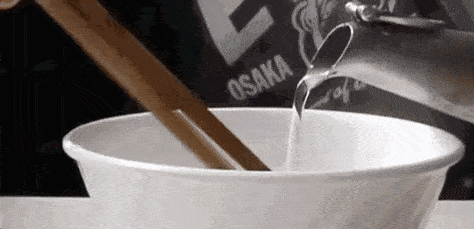Physical Address
304 North Cardinal St.
Dorchester Center, MA 02124
Physical Address
304 North Cardinal St.
Dorchester Center, MA 02124


China News Service Recently, the topic of “Professor says he is used to being disgusting with hot bowls” has become a hot search and sparked discussion. Do you need to burn a bowl when dining out? This seems to be a debate about personal habits, but the thinking about catering hygiene issues caused by it should be paid more attention to.
The habit of hot bowls has caused controversy
Recently, some netizens pointed out that management scientist Wang Zhongqiu posted a video saying that he was “disgusting” about Guangdong people’s habit of using boiling water to scald bowls, and this remark caused heated discussion among netizens.
There are supporters and opponents among netizens about the habit of hot bowls.
Supporters believe that hot bowls originate from Guangdong tea culture and is a cultural heritage. From a hygiene perspective, hot bowls can also clean the residues and dust of the detergent; opponents emphasize that overheating water in a few seconds cannot achieve the sterilization effect, which is purely “psychological comfort.”
On May 27, Wang Zhongqiu posted a video to respond to the controversy, saying that the facts were distorted and taken out of context. He said that the “disgusting” was to attract the attention of the society to improve the service standards of the catering industry. Some people maliciously took out one of the contents and provoked a certain area to fight back against customs and culture.
Is hot bowl useful?
So is it useful to burn a bowl?
First of all, let’s look at the national standards. According to the provisions in GB14934-2016 “National Food Safety Standard Disinfection Meals (Drinks) Tools”, the main microbial detection items in tableware are coliform bacteria and salmonella, both of which cannot be detected. In addition, anionic synthetic detergents (based on sodium dodecylbenzenesulfonate) must not be detected.
If you use tableware with excessive coliform bacteria, it will cause diarrhea, gastrointestinal infection, etc. When infected by salmonella, symptoms such as abdominal pain, diarrhea, vomiting, etc., threatening human health.
Can these bacteria be “scalded to death”?
According to the content published by the “Science Popularization China” public account,If you want to eliminate E. coli, you need to meet the condition that the temperature is above 75℃ and the time is up to 1 minute before it can be killed.
Salmonella is not heat-resistant and will die immediately after heating at 100°C. If the heating temperature is low, the heating time needs to be extended. When the temperature is 70°C, the heating needs to be continued for 5 minutes. If it is only 60°C, it takes 15 minutes to eliminate the salmonella.
Therefore, if you can ensure that the hot water in the 100℃ boiled tableware is blanched for a long time, it can have a certain sterilization effect. However, in most cases, the hot water provided in the restaurant cannot meet the temperature requirements and the rinsing time is insufficient. In this case, it is difficult to have a significant sterilization effect, and it can only play a simple rinse effect.
Scalding bowls reflects concerns about catering hygiene
Going back to the topic of debate itself, although hot bowls seem to be just a personal habit, behind this action sometimes reflects the public’s distrust of catering hygiene.
In recent years, in spot checks by market supervision departments in various parts of China, the phenomenon of unqualified random inspections of tableware has occurred frequently.
For example, recently, the Hainan Provincial Market Supervision Administration organized 421 batches of food safety supervision and random inspections, and 8 batches of samples were found to be unqualified. Among them, the water cup disinfected by Haikou 6:30 Catering Co., Ltd., whose coliform bacteria do not meet the national food safety standards. In addition, the dish disinfected by the company, the anionic synthetic detergent (based on sodium dodecylbenzenesulfonate) does not meet the national food safety standards.
In July 2024, the Beijing Municipal Market Supervision Administration’s announcement on food safety supervision sampling information (Issue 40, 2024) showed that the test results of coliform bacteria in rice bowls and stewed meat bowls of Beijing Shengjing Yue Catering Management Co., Ltd. were “detected/50cm²”, and the standard stipulates that it is not allowed to be detected.
Therefore, in order to ensure the safety of food for the public when dining outside, in addition to consumers themselves, it is more important that regulatory authorities increase supervision and law enforcement in the catering industry, catering companies strictly implement food safety standards, improve the level of hygiene services such as disinfection of catering utensils, and eliminate food safety hazards from the source.
More readings: